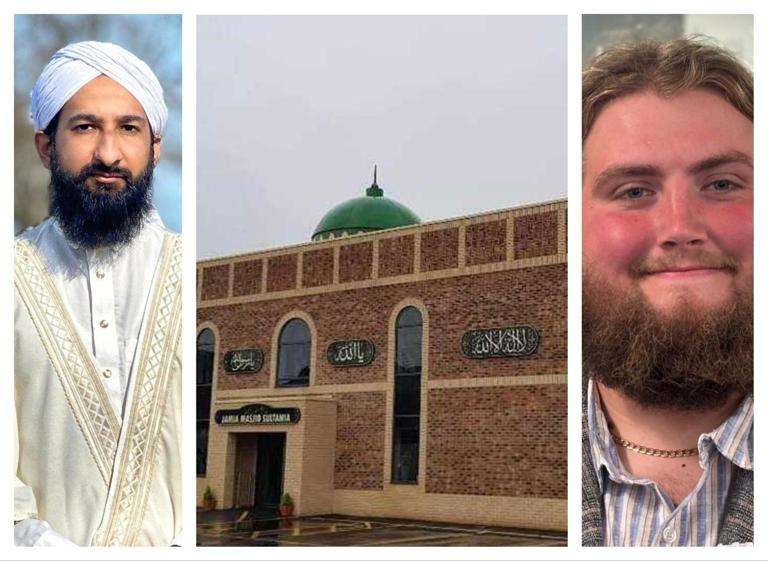Contestant Charlotte's bold tactic of pretending to have a Welsh accent has captured the attention of viewers of BBC One's popular show The Traitors.In an attempt to increase her credibility with other participants, the 33-year-old business director from London took on the persona, and astonishingly, it seems to be working. But is there any truth to her strategy? Does someone's accent actually affect our opinion of their credibility?Surprisingly, yes. Studies suggest that the way a person speaks, including their accent, can significantly impact how trustworthy they appear. A familiar or reassuring tone can foster trust, while an unfamiliar accent can sometimes breed suspicion or uncertainty.
In Charlotte’s case, the adoption of a Welsh accent, may be contributing to her success in deceiving her fellow contestants. Whether this calculated move will ultimately lead her to victory remains to be seen, but it undoubtedly highlights the fascinating power of accents in shaping social perceptions.A recent study, by University of Cambridge, found that the received pronunciation (RP) accent, often considered posh, was viewed as the least likely to engage in criminal behaviour, while accents from Liverpool and Bradford were seen as more likely.
As accents continue to influence our social and professional relationships, we’ve spoken to linguistic experts to explore how these subtle cues affect our trust decisions.Accents don’t inherently convey specific information, so the impressions we form are often influenced by stereotypical beliefs and associations we have with certain accents, explains Natalie Braber, professor of Linguistics at Nottingham Trent University.“What we know is that people make very quick judgements about other people based on their accents, and that they tend to be around two main sort of features; status and solidarity,” says Braber. “Status includes things like, how intelligent is this person? How rich is this person?
“What we find in research is that certain accents, like the RP or posh accents from the southeast of England, tend to rate higher on these status traits.
“However, solidarity refers to things like, how trustworthy is this person? How much do I like this person? How funny is this person? So, we tend to make those types of associations with particular accents.”
Which accents do people tend to trust more?
Studies on accent bias highlight common trends that suggest a preference for softer accents, such as Welsh and Irish.“There’s certain accents that tend to, regardless of who’s listening to them, rate high on solidarity on things like trustworthiness,” shares Braber. “This includes general Scottish accents, Irish and accents from the North East. Like from Newcastle, which tends to rate highly on solidarity.
“Maybe it’s because people have very positive associations with those places or think that the people who are from there are friendly, and then associate that with the accents that people have.”Charlotte Berman, a 33-year-old business director from London, has embraced this stereotype by using a Welsh accent in an effort to be seen as trustworthy on the latest season of popular BBC show, The Traitors.
“Its musical sing-song quality has an undeniable charm that people have noted to have an almost soothing effect,” recognises Noël Wolf, linguistic expert at language learning platform Babbel.
“In Charlotte’s case, her deployment of her mum’s Welsh accent seems to have served her well as she remains in the competition, however, fluent Welsh speaker and Cardiff native Elen was third player to be ‘murdered’, so it’s not always an ironclad strategy.”
Which accents do people tend to trust less?
“Certain urban accents, from cities like Birmingham and Liverpool, tend to rate lowly on both solidarity and status,” says Braber. “Obviously, if you have particular accent, you don’t think everybody who speaks like you is bad, but these are the kind of trends that we see when we do experiments with large groups of people.“If it’s a big city, people might think it’s a bit dangerous, or crime rates are higher there, and start linking these factors back to that particular accent as well.”
Cultural representation can also feed into this narrative.
“There is some interesting research that looks at Disney characters in films, and shows how the ‘goodies’ and the ‘baddies’ have different types of accents,” notes Braber. “If you’re being told that over and over again that goodies and baddies have certain accents through different cultural representations, then that’s something that is hard to break out of.”
Are we more likely to trust people who have the same accents as us?
Generally, people are more inclined to trust accents they are familiar with and are less likely to trust those they have limited exposure to.
“It’s inevitable that speaking to someone who possesses the same accent as your childhood friends, family members or the community you grew up in will foster trust,” says Wolf. “Likewise, listening to someone who speaks with the same tone and cadence as oneself is far easier to process cognitively than trying to comprehend another accent.”
What are the consequences of accent bias?
Accent bias can have all sorts of damaging effects in both social and professional life.“Historically, accent prejudice has encouraged and maintained a centralisation of wealth and power, as those perceived to be ‘well-spoken’ remained cemented amongst society’s elite, limiting mobility for those with regional accents,” reflects Wolf. “Currently, accent prejudice can have similar consequences as it leads to unequal opportunity in the workplace, schools and social interactions, as regional stereotypes remain enforced tropes to this day.”
So, how can we overcome this bias?
“Through familiarising ourselves with the variety of accents the UK and the rest of the world has to offer we can better appreciate the dialects themselves and the cultures around them, growing to perceive accents as the fascinating and enriching tapestry they are,” says Wolf.

_8.jpg)

_7.jpg)




.svg)


